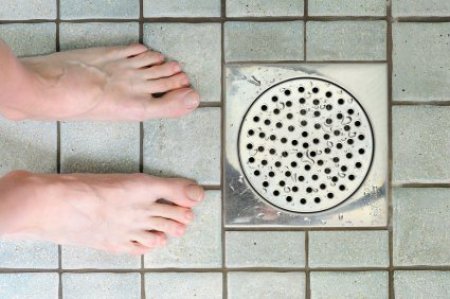
Greywater is domestic waste water from activities such as laundry, dishwashing, and bathing. Unlike sewage water (which is referred to as blackwater), greywater can be safely recycled for use in the landscape without the use of any special treatment systems. Because we use large amounts of this type of water for daily household activities 'the average bathtub uses 26 gallons,' in extreme drought conditions greywater can be a great way to conserve water.
The organic contaminants in some greywater, such as food particles, can supply plants with valuable nutrients for growth. However, greywater that is heavily contaminated with salt, soap residues, fats, or grease can be toxic (to both microbial and plant life) and should be avoided. Some types of domestic greywater are better than others for use in the garden. In order of preference they are: shower, bathtub, bathroom sink, and utility sink, provided bleaches or strong detergents have not been used. Water from dishwashers and washing machines is not safe to use as it contains too much detergent.Depending on your home's air quality, the water you collect from your dehumidifier may also be used. In fact, water from this source can actually be better for your plants than the water from your tap. Unlike tap water, a dehumidifier condenses water vapor out of the air so it contains none of the dissolved minerals that are sometimes present in tap water. It's unsafe for human consumption as there may be bacteria growing in it, but it should be fine to use on your plants.

About The Author: Ellen Brown is an environmental writer and photographer and the owner of Sustainable Media, an environmental media company that specializes in helping businesses and organizations promote eco-friendly products and services.
Add your voice! Click below to comment. ThriftyFun is powered by your wisdom!
Some houses in my country can not be linked to the local urban wastewater evacuation and treatment system. Sometimes it is because there is no such system in the countryside or because the houses are on a land much lower than the level of the wastewater evacuation tubes. It is the case of my parent's house and garden, and our neighbour's as well. We all had to build the same filtering system of wastewaters filtering and evacuation. This system is built with the authorisation of the national authorities only, and it is checked by the same authorities every 10 or 20 years because it allows to send the wastewaters, under special conditions on the land to slowly get into the soil or, as it is our case, to a river. This complete filtering system would be a bit too complicated and expensive to build only to filter greywaters to water the garden but there is a part of this system that could be useful and simple to use. The whole system is made of 6 pits that goes from the house to the river creating an artificial slope. The greywaters goes from the bottom of a pit to the top of the next one slowly enough to leave their heavier elements at the bottom of each pit. Here's the "trick" you could use to filter greywaters. The first of the six pits which is the one that receive greywater directly from the house is by two third filled up with lava stones. The greywaters are actually "cleaned" when they go through the thick layer of lava stones. When this system is checked by the authorities, we are only asked to brush these stones one by one. This system works well, surprisingly, these stones are not terribly dirty and it is not hard and really quickly done to brush them clean with just water and we can see how nearly clear the originally greywaters are when they get mixed with the water of the river.
Some houses in my country can not be linked to the local urban wastewater evacuation and treatment system. Sometimes it is because there is no such system in the countryside or because the houses are on a land much lower than the level of the wastewater evacuation tubes. It is the case of my parent's house and garden, and our neighbour's as well. We all had to build the same filtering system of wastewaters filtering and evacuation. This system is built with the authorisation of the national authorities only, and it is checked by the same authorities every 10 or 20 years because it allows to send the wastewaters, under special conditions on the land to slowly get into the soil or, as it is our case, to a river. This complete filtering system would be a bit too complicated and expensive to build only to filter greywaters to water the garden but there is a part of this system that could be useful and simple to use. The whole system is made of 6 pits that goes from the house to the river creating an artificial slope. The greywaters goes from the bottom of a pit to the top of the next one slowly enough to leave their heavier elements at the bottom of each pit. Here's the "trick" you could use to filter greywaters. The first of the six pits which is the one that receive greywater directly from the house is by two third filled up with lava stones. The greywaters are actually "cleaned" when they go through the thick layer of lava stones. When this system is checked by the authorities, we are only asked to brush these stones one by one. This system works well, surprisingly, these stones are not terribly dirty and it is not hard and really quickly done to brush them clean with just water and we can see how nearly clear the originally greywaters are when they get mixed with the water of the river.
Add your voice! Click below to comment. ThriftyFun is powered by your wisdom!